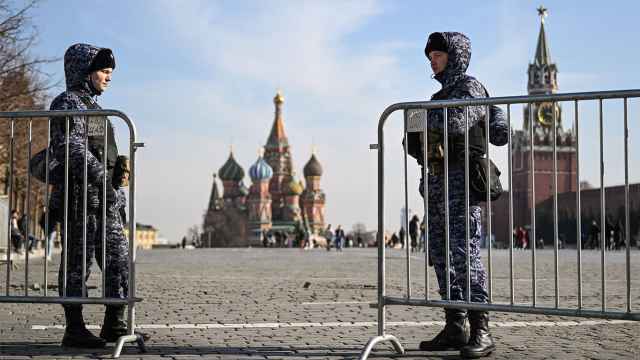The Dutch Supreme Court lifted the freeze on $1.2 billion of proceeds from the 2006 sale of a refinery by a former Dutch unit of Yukos Oil, once Russia’s largest oil producer.
Yukos International UK BV “isn’t prohibited to dispose of the proceeds,” The Hague-based court said Friday in a statement on its web site. It overturned prior rulings by the Court of Appeals and the District Court in Amsterdam.
Promneftstroi, an investment vehicle controlled by U.S. businessman Stephen Lynch, agreed to buy the legal entity that held all Yukos International shares in 2007. That transaction was later canceled by a Dutch court, so there is no legal ground for Promneftstroi’s argument that Yukos International isn’t allowed to claim the money, the Supreme Court said.
“This ruling is another positive step toward the ultimate resolution of the false ownership claims of Promneftstroi,” Bruce Misamore, Yukos’ former finance chief, said in an e-mailed statement after the ruling. “Yukos International UK BV directors are committed to ensuring that stakeholders damaged by the illegal expropriation of Russia’s most successful oil company can someday benefit from the distribution of funds commensurate to their investment.”
Then-President Vladimir Putin’s government dismantled Yukos Oil, once the country’s biggest crude-oil exporter, after imposing more than $30 billion in tax charges. State-run Rosneft became the nation’s largest oil company by acquiring most of bankrupt Yukos’ assets for $27 billion in 2006 after a series of forced auctions.
“In this legal battle, we are disadvantaged by an unprecedented public relations and lobbying campaign financed by the very funds under dispute,” Promneftstroi’s Lynch said by telephone. “This campaign has created an accepted myth that the bankruptcy of Yukos Oil arose from various political factors and not the undisputed tax schemes operated by Yukos Oil.”
Yukos International’s shares are currently held by a foundation run by former Yukos Oil executives and a number of independent persons, Barbara Rumora-Scheltema, a lawyer with the firm NautaDutilh, representing Yukos International, said by telephone Friday.
The foundation’s aim is to ensure Yukos Oil’s former shareholders get the assets that have been preserved, Rumora-Scheltema said.
The foundation won’t distribute the $1.2 billion from the sale of a Lithuanian refinery, Mazeikiu Nafta, as long as there is still a dispute over whether Promneftstroi owned Yukos Finance, Rumora-Scheltema said.
The Amsterdam Court of Appeals decided in October that the sale by a Russian administrator of Yukos Finance BV, which owned Yukos International’s equity, wasn’t legal because it didn’t fall within Yukos Oil’s Russian bankruptcy.
“We are disappointed in the decision of the Supreme Court to lift the freezing order,” Lynch said by e-mail. The ruling was “without any indication that it sought to balance the interests at stake.”
The “matter of actual ownership of Yukos Finance is the subject of continuing legal contests,” Lynch said, adding that Promneftstroi will “shortly” submit an appeal to the Dutch Supreme Court.
A Message from The Moscow Times:
Dear readers,
We are facing unprecedented challenges. Russia's Prosecutor General's Office has designated The Moscow Times as an "undesirable" organization, criminalizing our work and putting our staff at risk of prosecution. This follows our earlier unjust labeling as a "foreign agent."
These actions are direct attempts to silence independent journalism in Russia. The authorities claim our work "discredits the decisions of the Russian leadership." We see things differently: we strive to provide accurate, unbiased reporting on Russia.
We, the journalists of The Moscow Times, refuse to be silenced. But to continue our work, we need your help.
Your support, no matter how small, makes a world of difference. If you can, please support us monthly starting from just $2. It's quick to set up, and every contribution makes a significant impact.
By supporting The Moscow Times, you're defending open, independent journalism in the face of repression. Thank you for standing with us.
Remind me later.





